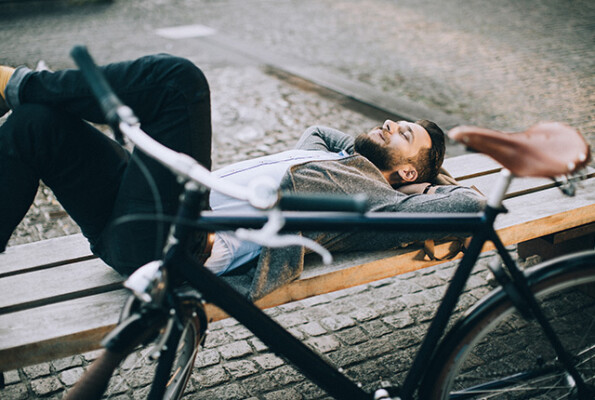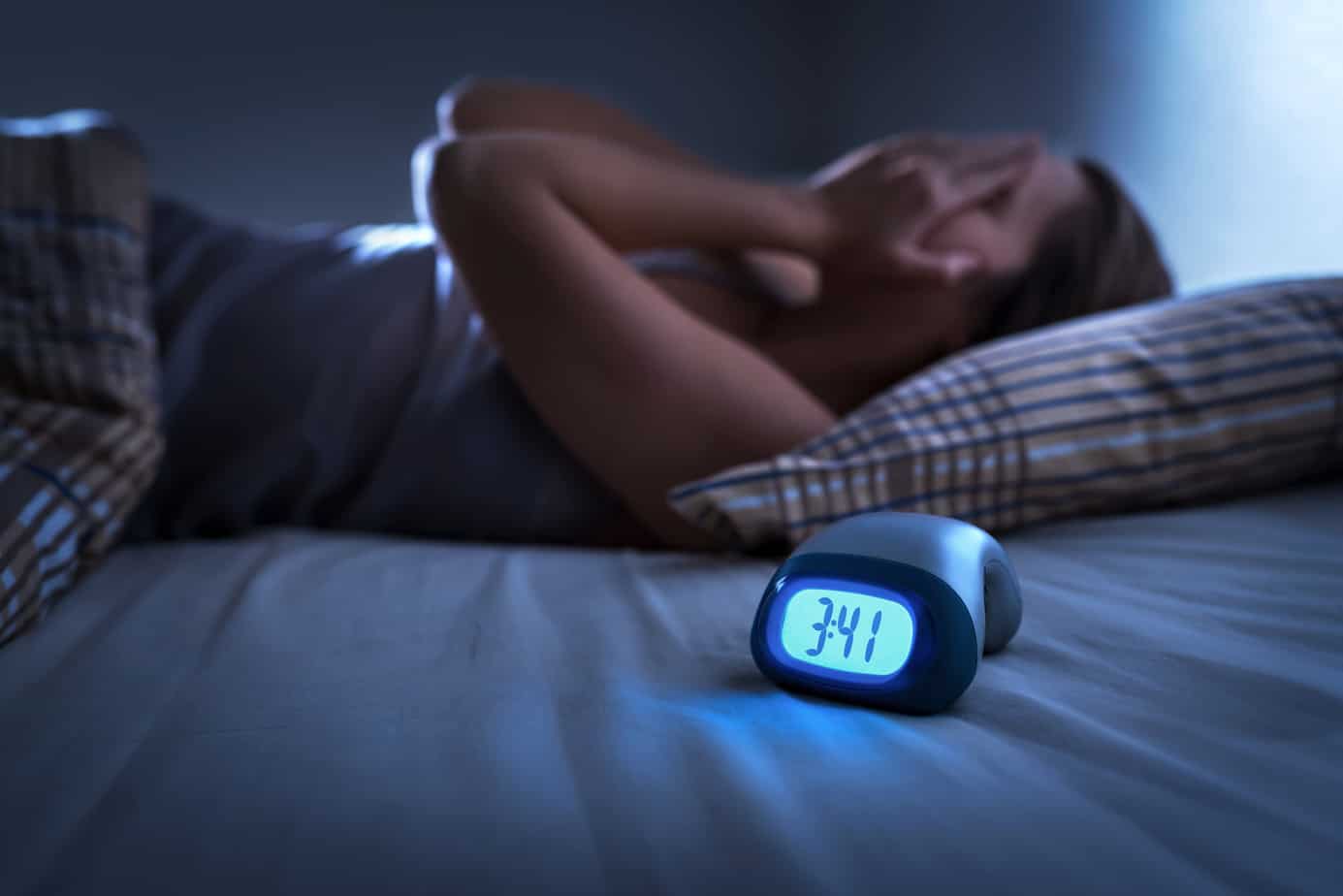Better Sleep, Better Cycling: Tips to Boost Your Cycling Performance
Cyclists usually pay a lot of attention to training, nutrition, and recovery to boost their performance, but one important aspect is often ignored: sleep. Good quality sleep not only helps with recovery but also sharpens your body and mind for improved endurance, focus, and muscle function.

This article explores the science behind sleep and gives practical tips on how to improve your sleep patterns, helping you become a stronger and more efficient cyclist.
How many hours of sleep should we get?
Most adults should aim for 7 to 9 hours of sleep each night. However, endurance athletes like cyclists have higher physical demands, making enough sleep even more important. According to the National Sleep Foundation and research by sports scientists, athletes can benefit from getting 8 to 10 hours of sleep. This extra rest helps them recover better from their workouts and supports muscle growth.
Is there a best time of day to train to complement circadian rhythms?
The effectiveness of training is influenced by people's natural body clocks, or circadian rhythms. Those who feel more awake in the morning may do better with early workouts, while night owls tend to perform better later in the day. Adjusting exercise routines to match when people feel most energetic can lead to better results. Research shows that mornings are generally better for endurance cycling and intense cardio workouts, while late afternoons are great for strength training, flexibility, and reducing the risk of cycling injuries.
What steps can cyclists take to ensure high-quality sleep?
Create a Sleep-Friendly Environment: Use blackout curtains, reduce noise, and maintain a cool room temperature (~18°C or 65°F).
Limit Blue Light Exposure: Avoid screens at least an hour before bed, or use blue light filters.
Establish a Routine: Go to bed and wake up at the same time daily, even on weekends.
Avoid Heavy Meals and Caffeine: Finish eating at least 2–3 hours before bed and limit caffeine in the afternoon.
Remember that one night of bad sleep won't seriously affect your performance. What's more important is getting good sleep over time.
How does overtraining disrupt circadian rhythms?
Overtraining isn't just about pushing your body too hard; it also affects your biology. When you train too much without enough rest, it can throw off your hormones, raise your cortisol levels (a stress hormone), and disturb your sleep. This can lead to problems like difficulty falling asleep, waking up often during the night, and feeling tired even after getting more than 8 hours of sleep.
A study from 2014 in Frontiers in Physiology found that athletes who train too much can have lower melatonin levels and messed-up sleep patterns, which harm their recovery and performance. It's important to keep track of training intensity and include rest days to maintain both physical health and a regular sleep cycle.

One of the best ways to prevent overtraining is by tracking your heart rate zones during workouts. A Coospo heart rate monitor makes it easy to monitor how hard you're pushing in real time. By staying aware of your heart rate zones, you can ensure you're training at the right intensity—and avoid pushing into the red zone too often.
Understanding your heart rate patterns can help you:
- Spot signs of fatigue early
- Adjust your intensity for better recovery
- Maintain balanced training that supports your sleep and performance
Training smart with tools like a heart rate monitor keeps your body in rhythm—both on and off the bike.
How best to nurture regular circadian rhythms?
Athletes can benefit from spending time outside in the morning to help regulate their body clocks. Going for a walk in natural light after waking up is a strong signal for the body to manage melatonin, the hormone that helps control sleep and wake times. Getting bright light in the morning can strengthen body rhythms, leading to better sleep, more energy, and improved performance.
If I wake during the night, how best to get back to sleep?
It’s normal to wake briefly during the night, but trouble falling back asleep can impact recovery. Try the following:
Avoid checking the clock or your phone: This can increase stress and wakefulness.
Practice deep breathing or meditation: Calm your nervous system and focus on relaxing each muscle group.
Keep lights dim: If you need to get up, avoid bright lights.

Dr. Matthew Walker, a sleep expert and author of Why We Sleep, says that it's important to not worry about being awake. Feeling stressed about not sleeping can actually make it harder to fall back asleep than just being awake itself.
How does alcohol affect sleep?
Alcohol can help you fall asleep faster, but it messes up your sleep patterns. It cuts down on REM (rapid eye movement) sleep, which is important for thinking clearly and managing your mood. It also makes your sleep more broken and can cause dehydration, both of which hurt how well you perform the next day.
A study in Alcoholism: Clinical & Experimental Research found that alcohol consumption before bed reduces overall sleep quality, particularly during the second half of the night.
How to sleep like an elite athlete
Adjust light gradually
As evening approaches, it's a good idea to reduce your exposure to bright, blue light that mimics daylight. Gradually switch to softer, warm (amber) light and then to darker surroundings. Focus on reducing the light that reaches your eyes rather than making the whole room completely dark.

Check your light levels
Download a free Lux light meter app to check how bright your surroundings are (in lux). Use soft, warm lighting in the evening; seek bright light in the morning.
Cool down
As your body gets ready for sleep, it lowers its core temperature. To help this process, it’s best to sleep in a cool, but not too cold, environment, and use fresh, breathable bedding.
Understand sleep cycles
Sleep happens in cycles that last about 90 minutes. The deepest and most restorative sleep stages occur mostly in the first part of the night. It's best to aim for either four full cycles, which gives you six hours of sleep, or five cycles, which gives you seven and a half hours, depending on what works best for you.
Prioritise sleep quality
The most restorative parts of sleep happen mainly in the first two to three stages. To improve your sleep quality, focus on daily habits that promote physical recovery and mental relaxation.
Wake at the same time
Waking up at the same time every day is important for keeping your body's internal clock in sync. This habit helps improve your overall health and boosts your mood.
Conclusion
Getting better sleep is about more than just how many hours you sleep; it's also about when you sleep and how well you rest. For cyclists, matching sleep with training times, keeping a regular sleep schedule, and making sure rest is high-quality can lead to big improvements in performance, mood, and recovery. Think of your sleep like your nutrition or your bike—it's a crucial part of your success on the road.










